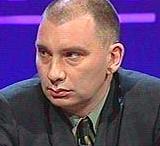 Writing in the Observer, Nick Cohen takes issue with the results of the Caldicott inquiry, commissioned by University College London, which absolved the university and the students’ union Islamic Society of any responsibility for the “Christmas Day bomber” Umar Farouk Abdulmutallab turning to violent extremism.
Writing in the Observer, Nick Cohen takes issue with the results of the Caldicott inquiry, commissioned by University College London, which absolved the university and the students’ union Islamic Society of any responsibility for the “Christmas Day bomber” Umar Farouk Abdulmutallab turning to violent extremism.
Not that Cohen addresses the actual content of the 37-page report produced by the inquiry. Instead we get this: “I could attack it by emphasising that UCL had chosen to put on the inquiry team Muhammad Abdul Bari, secretary general of the Muslim Council of Britain. Dr Bari is high up in the Jamaat-e-Islami-dominated East London Mosque.” And Cohen goes on to outline JI’s part in opposing the Bangladesh independence struggle back in 1971.
Leaving aside the question of whether the actions of a political party in East Pakistan four decades ago tell you anything at all about the political role its sympathisers play in the UK in 2010, Cohen ignores the fact that many of the opponents of the ELM leadership within the British Bangladeshi community are themselves linked to a political party in Bangladesh – the Awami League.
This is the organisation that led the 1971 independence struggle but within a few years had lost popular support. Its response was to ban rival political parties and impose a one-party state, while establishing an executive presidency to which the League’s leader appointed himself without bothering to go through the formalities of an election.
Cohen is always ready to denounce “totalitarian Islamism”, but it would appear that he has no problem at all with totalitarianism when it is practised by secular nationalists.
Cohen also finds it significant that one Riyadh ul-Haq was invited to speak at an ISoc charity dinner in November 2005, and quotes an antisemitic statement attributed to him in a Times report. Such statements are of course to be condemned. But nobody has presented any evidence that Riyadh ul-Haq incited hatred against the Jewish community or anyone else when he spoke at the ISoc dinner, or that ISoc was even aware that he held antisemitic views.
The question of whether speakers may use students’ union society meetings as a platform to promote bigotry does need to be addressed. Indeed, a substantial section of the Caldicott inquiry’s report, which Cohen dismisses as a whitewash, is devoted to this very issue. Noting that the UCLU adminstration has brought in new procedures to check the background of external speakers, the report proposes that these procedures should be “further reviewed and strengthened” and recommends that “UCL Union, in consultation with the UCL authorities, review its criteria for defining the acceptability of prospective visiting speakers”.
However, this is hardly an issue restricted to ISocs. Earlier this year there was a controversy when the Israel Society at Cambridge University invited the Israeli historian Benny Morris to speak at one of their meetings. Morris believes that “the phenomenon of the mass Muslim penetration into the West and their settlement there” has had the effect of “creating a dangerous internal threat”. He is also on record as stating that “the Muslims are busy killing people, and killing people for reasons that in the West are regarded as idiotic. There is a problem here with Islam”.
But somehow Cohen didn’t get round to condemning the university Israel Society for promoting political extremism and hatred. In fact, he said nothing about the issue at all.
Cohen also pours scorn on UCL’s awareness of Islamism, accusing them of “ignorance” and saying that he doubts whether “one lecturer in 10 at UCL knows anything about the ideologies of Jamaat and the Muslim Brotherhood”. Presumably that would be as distinct from the deep knowledge of all things Islamic we have come to expect from Nick Cohen – a man who thinks that Muhammad Abdul Bari is still secretary general of the MCB when Dr Bari ceased to occupy that position four months ago.
The reality is that Cohen never showed the slightest interest in Islam or Islamism until the run-up to the invasion of Iraq – of which he was an enthusiastic supporter – when the Muslim Association of Britain became centrally involved in organising a mass movement in opposition to the war. Suddenly Cohen discovered that political Islam represented a major threat to civilisation as we know it. And even then his hostility was hardly based on any actual study of the subject.
This is the man who angrily informed Observer readers in February 2003 that the huge demonstration against the Iraq war that brought London to a standstill was jointly organised by “the reactionary British Association of Muslims”. Cohen knew so little about MAB that he couldn’t even get their name right – but of course he didn’t see his own ignorance as any obstacle to denouncing them as reactionaries.
